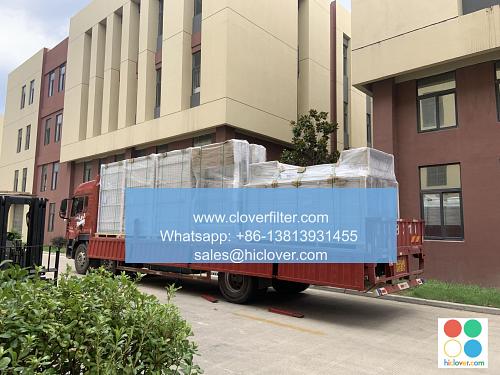Development of Hybrid Air Filters for Enhanced Efficiency

Advancements in Air Filtration Technology: The Rise of Hybrid Air Filters
Air filters have been a crucial component in various industries, including industrial, commercial, and residential applications. Conventional air filters have been successful in removing impurities and pollutants from the air, but they have limitations in terms of efficiency and maintenance. The development of hybrid air filters has revolutionized the field, offering enhanced efficiency, reliability, and cost-effectiveness. In this article, we will explore the development of hybrid air filters, their benefits, and various application areas.
What are Hybrid Air Filters?
Hybrid air filters are a combination of different filter materials and technologies that work together to provide superior air quality. These filters are designed to capture a wide range of impurities, including particles, gases, and micropollutants, to improve indoor air quality and reduce the risk of airborne diseases.
Key Features of Hybrid Air Filters
- Multistage Filtration: Hybrid air filters use a combination of pre-filtration, coalescing, and activated carbon filtration to capture impurities at different stages, resulting in higher efficiency and longer filter lifespan.
- Multi-Media Construction: Hybrid air filters are constructed with multiple layers of different materials, including fiberglass, cotton, and synthetic media, to provide optimal filtration performance.
- Improved Airflow: Hybrid air filters are designed to maintain better airflow rates, reducing pressure drop and increasing airflow capacity.
- Chemical Treatments: Some hybrid air filters are treated with chemicals to capture gases and odors, further enhancing their performance.
- Higher Efficiency: Hybrid air filters capture a wider range of impurities, including particles, gases, and microorganisms, leading to improved indoor air quality and reduced health risks.
- Longer Filter Lifespan: Combine multi-stage filtration and multi-media construction to extend filter lifespan and reduce maintenance costs.
- Simplified Maintenance: Hybrid air filters are often designed with easy-clean designs, reducing maintenance tasks and downtime.
- Cost-Effective: Hybrid air filters can be more cost-effective than traditional air filters, reducing replacement costs and energy consumption.
- Industrial Applications: Hybrid air filters are used in industrial environments, such as manufacturing plants, laboratories, and cleanrooms, to maintain high-quality air and reduce contamination risks.
- Commercial Buildings: Hybrid air filters are used in offices, hospitals, schools, and other commercial buildings to improve indoor air quality and reduce allergen and pollutant exposure.
- Residential Applications: Hybrid air filters are used in residential settings, such as homes, apartments, and condos, to reduce indoor air pollution and improve respiratory health.
- Aerospace and Defense: Hybrid air filters are used in aircraft, spacecraft, and defense applications to maintain critical air quality and secure operations.
- [1] "Hybrid Air Filters: The Future of Air Filtration" by ASHRAE Journal
- [2] "Advances in Air Filtration Technology: A Review" by Journal of Environmental Science and Technology
- [3] "Hybrid Air Filters: A Review of Current Trends and Applications" by International Journal of Environmental Research and Public Health
Benefits of Hybrid Air Filters
Application Areas of Hybrid Air Filters
Conclusion
Hybrid air filters have become a game-changer in the air filtration industry, offering enhanced efficiency, reliability, and cost-effectiveness. As the demand for improved air quality continues to grow, the development of hybrid air filters will play a crucial role in maintaining a healthy and clean indoor environment. By harnessing the benefits of hybrid air filters, we can ensure a safer, healthier, and more productive environment for all.
References
I’m happy to help! What would you like to talk about or write about?


